ACELT1606
Understand, interpret and experiment with a range of devices and deliberate word play in poetry and other literary texts, for example nonsense words, spoonerisms, neologisms and puns
Elaborations
- defining spoonerisms, neologisms and puns and exploring how they are used by authors to create a sense of freshness, originality and playfulness (Skills: Literacy, Critical and Creative Thinking)
- discussing poetic language, including unusual adjectival use and how it engages us emotionally and brings to life the poet's subject matter, for example 'He grasps the crag with crooked hands' (Alfred, Lord Tennyson); 'Wee ... tim'rous beastie' (Robert Burns) (Skills: Literacy, Critical and Creative Thinking)
- Plus Plan

Poetic Devices PowerPoint
A 23 slide editable PowerPoint template to use when introducing students to poetic devices.
- Plus Plan
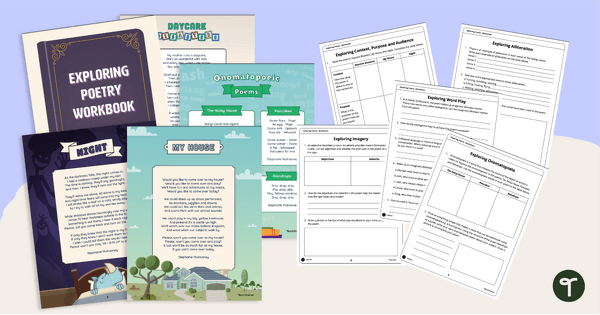
Exploring Poetry Workbook
A workbook to help students become more familiar with the genre of poetry.
- Free Plan
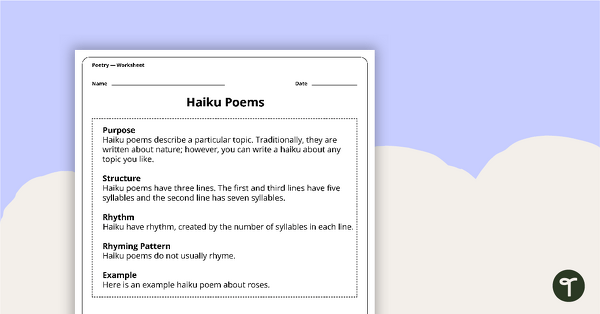
Writing a Haiku Poem Worksheet
A 2 page worksheet for students to use when learning how to write a haiku poem.
- Plus Plan
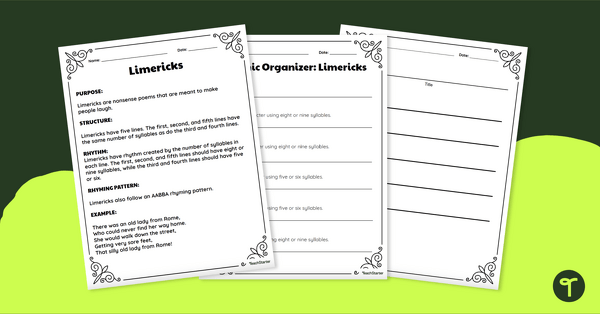
Limericks for Kids - Poem Template
A 3-page limerick template and instructions for students to use when learning how to write a limerick.
- Plus Plan
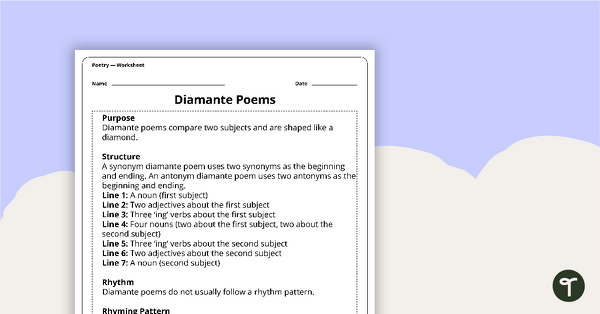
Writing a Diamante Poem Worksheet
A 2 page worksheet for students to use when learning how to write a diamante poem.
- Plus Plan
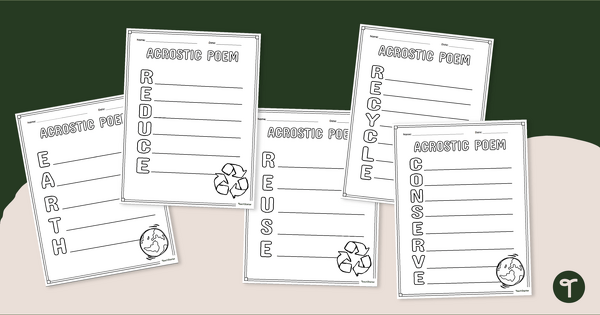
Earth Day - Acrostic Poem Template Pack
An acrostic poem template to use in the classroom to celebrate Earth Day and National Poetry Month.
- Plus Plan
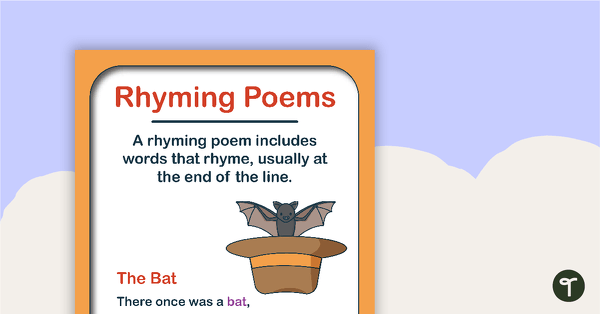
Rhyming Poems Poster
A poster providing a definition and example of a rhyming poem.
- Plus Plan
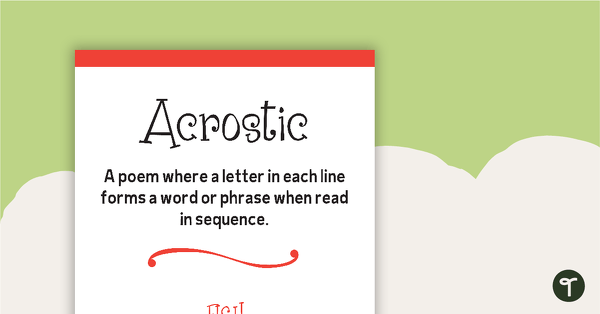
Types of Poetry Posters
A set of 9 posters examining different styles of poetry.
- Plus Plan
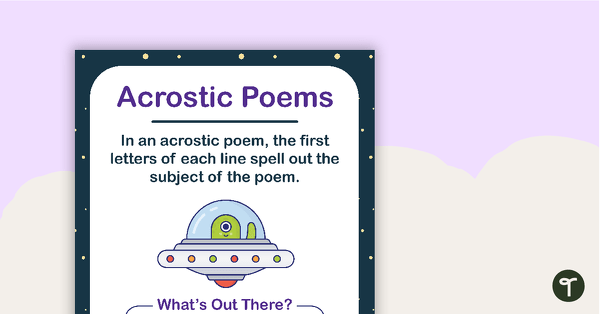
Acrostic Poems Poster
A poster providing a definition and example of an acrostic poem.
- Plus Plan
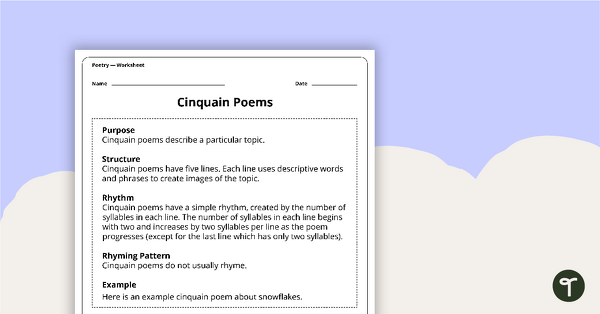
Writing a Cinquain Poem Worksheet
A 2 page worksheet for students to use when learning how to write a cinquain poem.
- Plus Plan
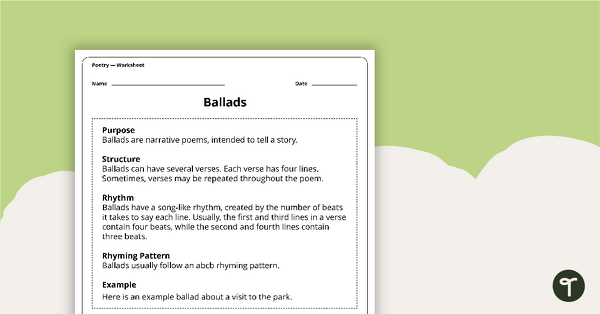
Writing a Ballad Worksheet
A 2 page worksheet for students to use when learning how to write a ballad.
- Plus Plan
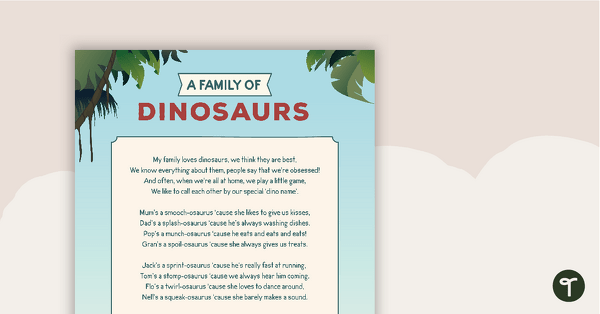
Exploring Poetry Worksheet - Word Play
A worksheet to help students understand word play in poetry.
- Free Plan
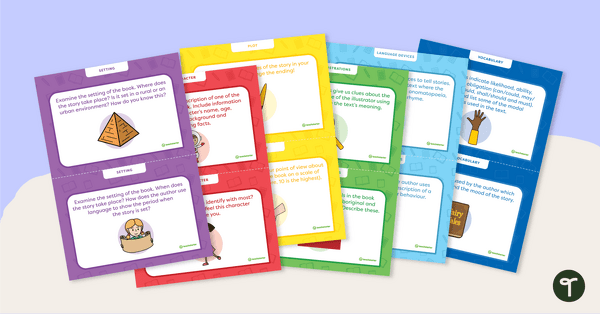
Literature Study Task Cards (Upper Primary)
Explore the wonders of children's literature with this set of 14 literature study task cards for upper primary students.
- Plus Plan
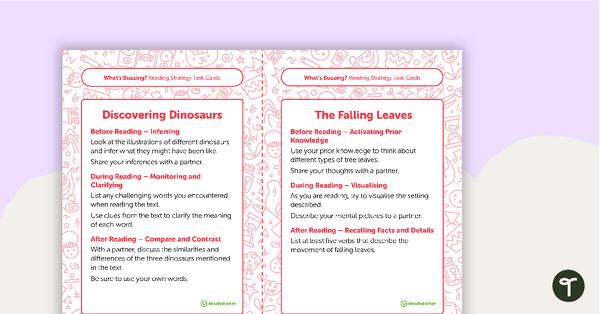
Year 4 Magazine – "What's Buzzing?" (Issue 3) Task Cards
A set of five literacy rotation task cards to be used in conjunction with Issue 3 of Teach Starter’s Year 4 magazine.
- Plus Plan
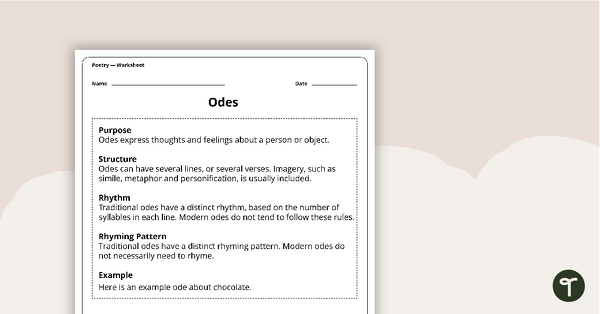
Writing an Ode Worksheet
A 2 page worksheet for students to use when learning how to write an ode.
- Plus Plan
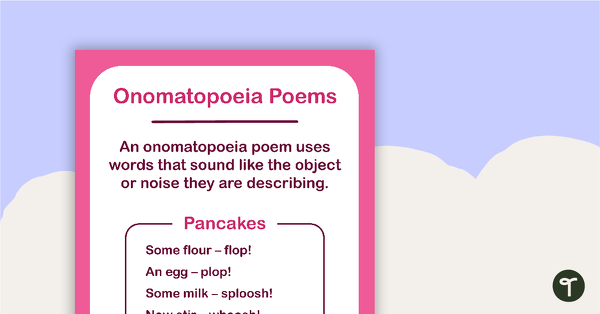
Onomatopoeia Poems Poster
A poster providing a definition and example of an onomatopoeia poem.
- Plus Plan
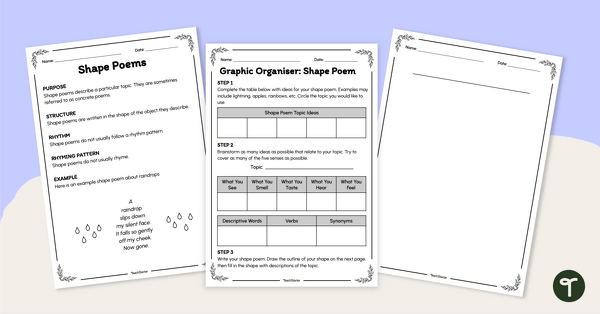
Writing a Shape Poem Worksheet
A 2 page worksheet for students to use when learning how to write a shape poem.
- Plus Plan
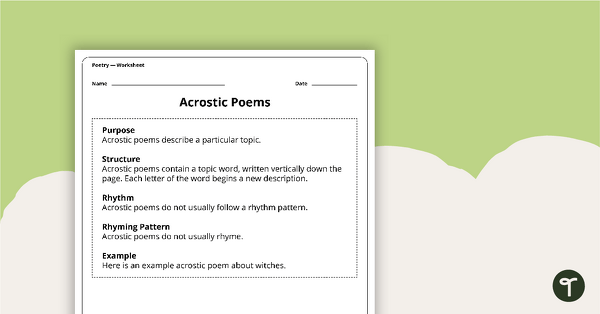
Writing an Acrostic Poem Worksheet
A 2 page worksheet for students to use when learning how to write an acrostic poem.
- Plus Plan
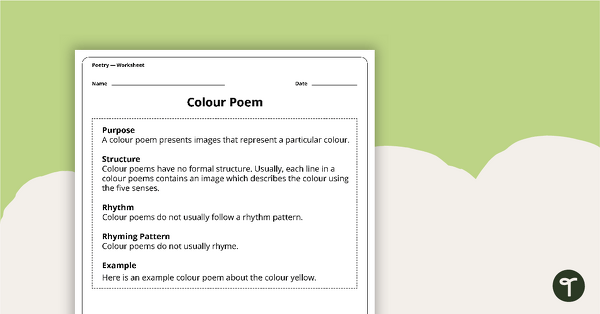
Writing a Colour Poem Worksheet
A 2 page worksheet for students to use when learning how to write a colour poem.
- Plus Plan
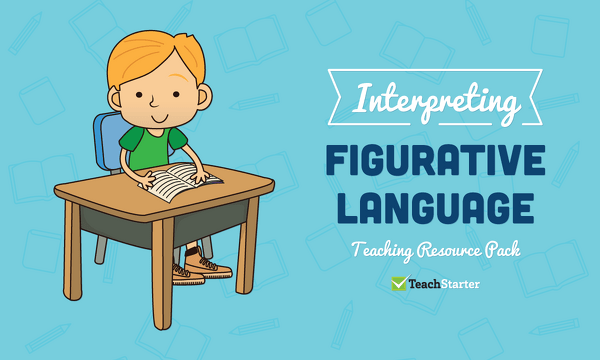
Comprehension Strategy Teaching Resource Pack - Interpreting Figurative Language
A comprehensive resource pack helping students explore the concept of figurative language.
- Plus Plan
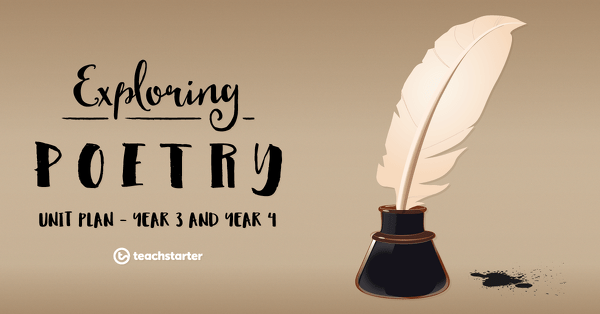
Exploring Poetry - Year 3 and Year 4 Unit Plan
This English unit addresses common poetic devices such as sound play, word play and imagery and explores how these may be applied to narrative poetry.
- Plus Plan
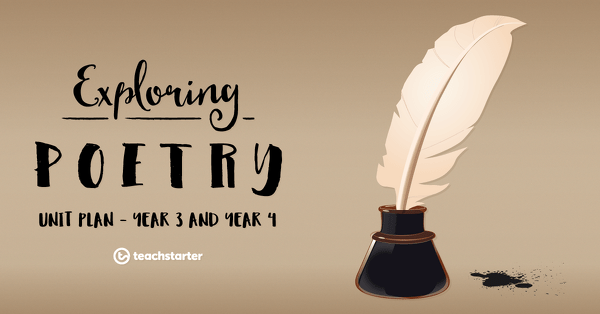
Word Play in Poetry
A 60 minute lesson in which students will identify and explore word play in poetry.